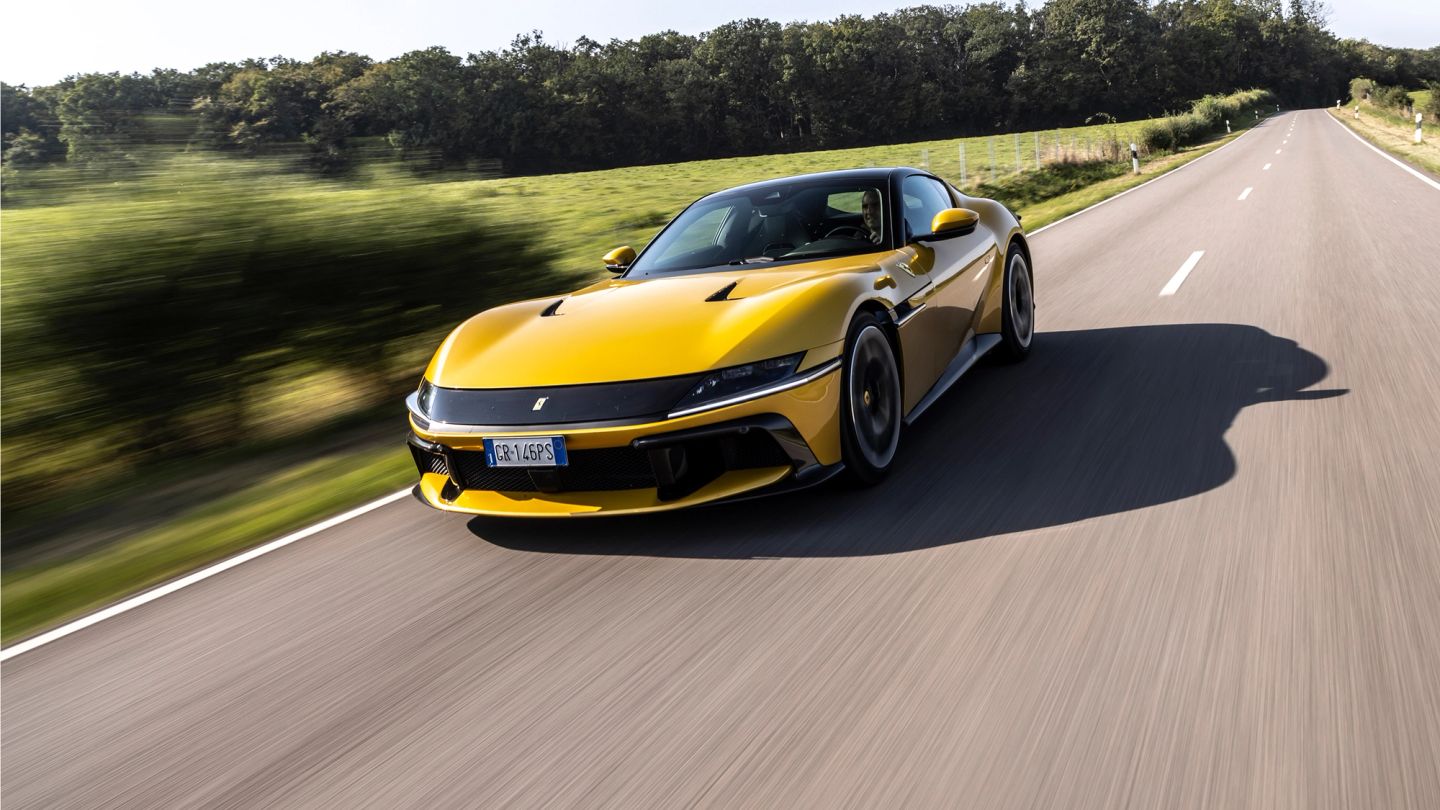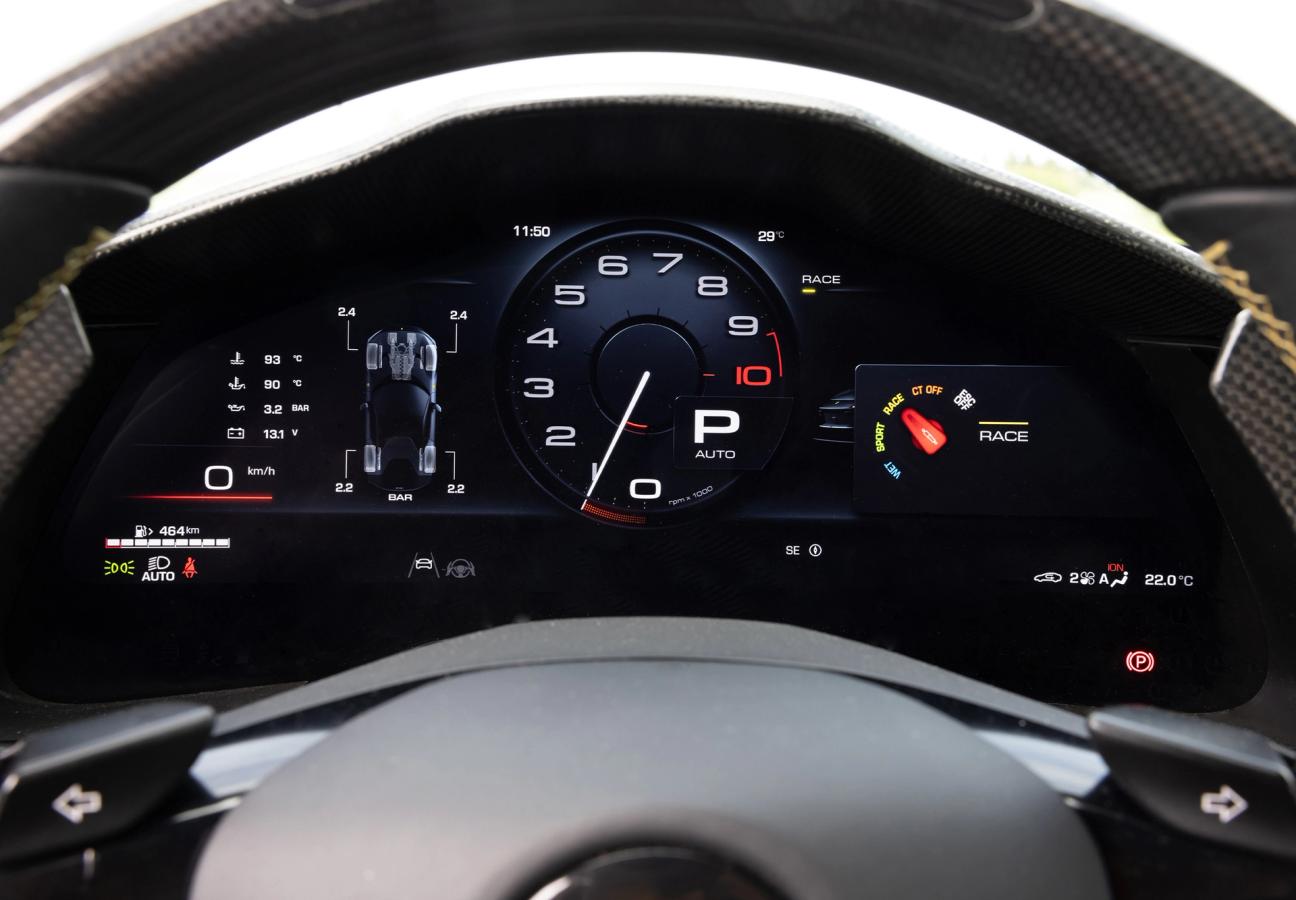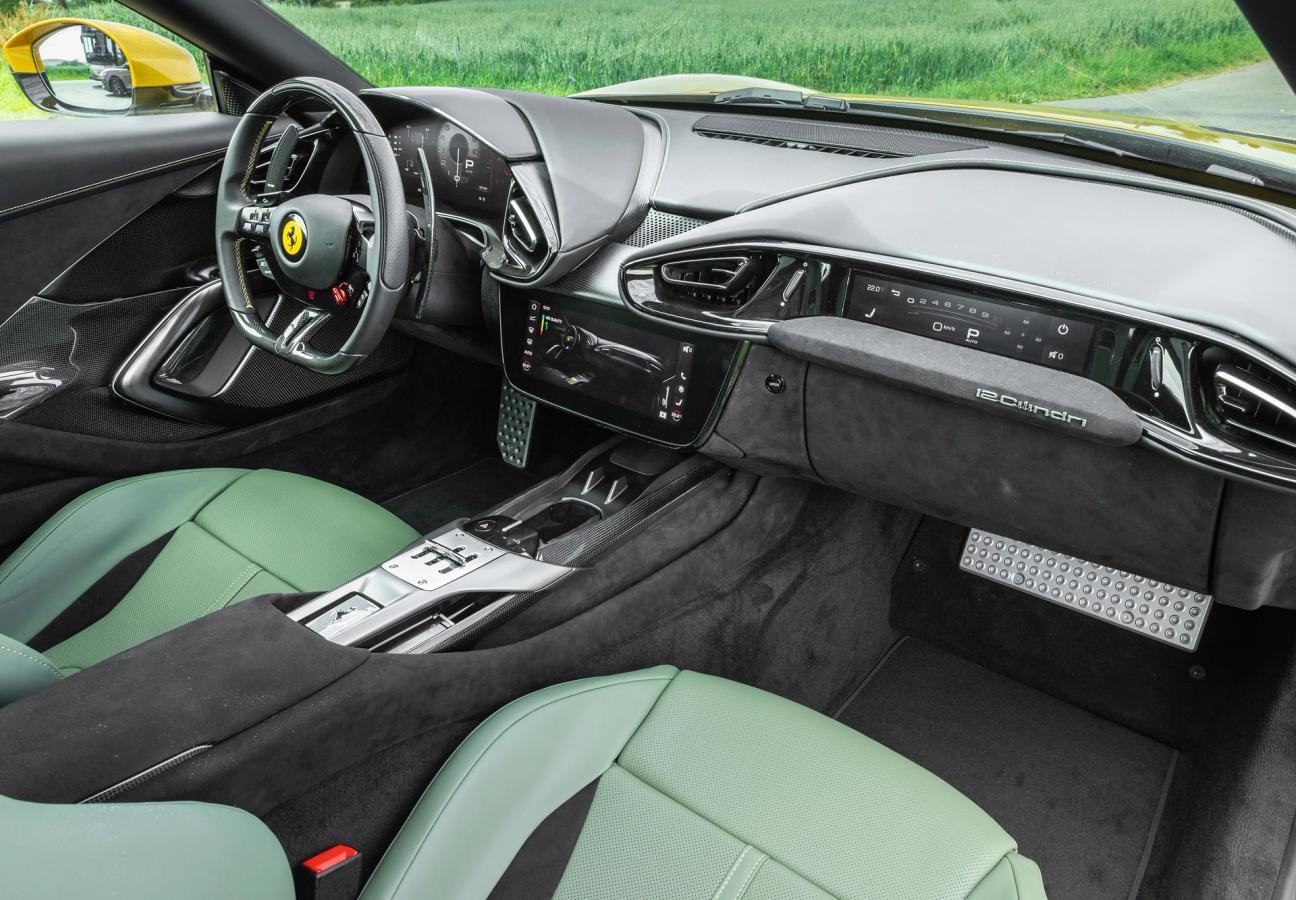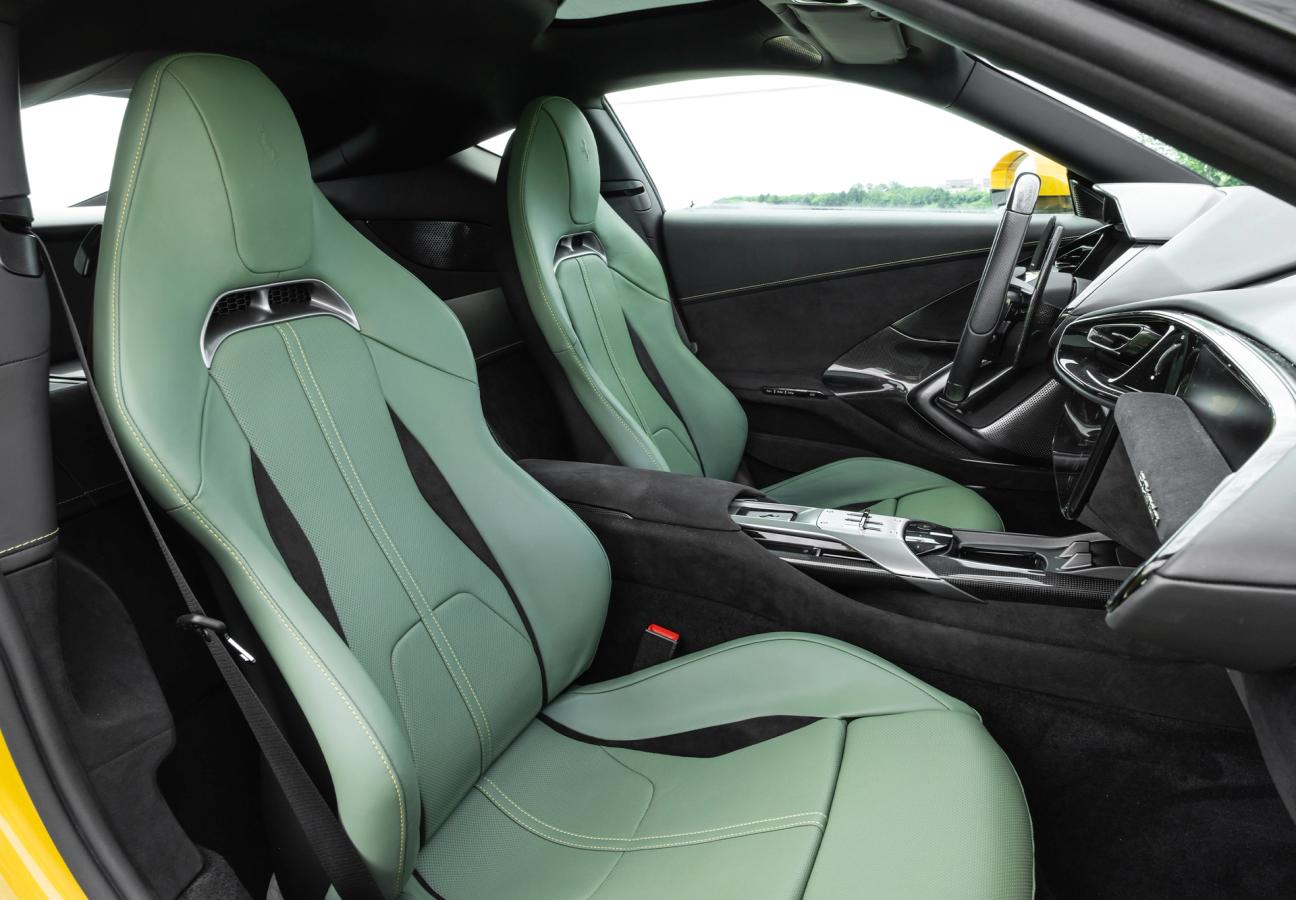

Words: Rory FH Smith
Flick all the way through Ferrari’s voluminous history book back to 1947, and you’ll stumble upon a charming little open-top sports car, finished in red – naturally – called the 125 S. Save for its colour, and little prancing horse on a yellow background mounted on the tip of the bonnet, you’d be hard pushed to know it was a Ferrari, not least the marque’s very first road car. Its pretty little rounded headlamps and practically arranged metal grilles at the front are poles apart from the sculpted carbon fibre, razor sharp lights and aggressive air intakes of modern-day Ferraris. But beneath its handsome coachwork, lies something significant: a V12 engine.
“The 12-cylinder will always be the original Ferrari car... everything else is a derivation of the original model,” declared Enzo Ferrari in an interview years later, wearing his trademark black, Persol #2762 sunglasses that were almost universally fixed to his face for public appearances. Since the late 1940s, the V12 has been at the beating heart of many of Ferrari’s road cars. Today, in the dying days of the combustion engine, Ferrari is paying the ultimate tribute to its iconic power plant, with the arrival of the Ferrari Dodici Cilindri, otherwise translated, quite simply, as the Ferrari 12 Cylinder.
“We consider [the engine] so much to be at the heart of the car that we named the car after it,” says Ferrari design boss Flavio Manzoni at the vehicle’s launch in Luxembourg. No prizes, then, for guessing what lies under the bonnet of his latest creation.
With an engine derived directly from the special edition 812 Competizione before it, the 12 Cilindri sports nothing short of a 6.5-litre unit that produces 818hp and revs to 9,500rpm. A far cry from the 1.5-litre V12 in the plucky little 125 S, that produced around 116hp. With that, the 12 Cilindri will cover off the 0-60 mph dash in just 2.9 seconds and on to a supercar-worthy top speed of 211mph. Only the 12 Cilindri isn’t a supercar. It’s “the most complete Ferrari Gran Turismo of all time,” proclaims Manzoni.
This is an important difference in the highly strung world of new Ferraris. With the blisteringly quick SF90 stealing the fastest Ferrari crown (previously worn by the 812), the new 12 Cilindri doesn’t need to worry about acing the Top Trumps stats any more. It can, as Manzoni points out, focus its energy on being a well-rounded grand tourer – something it does brilliantly both in the way it drives and looks.

Starting with first impressions, it’s clear Ferrari consulted some of the more eccentric models from its back catalogue when drawing inspiration for the design of the 12 Cilindri. Citing wacky, wedge-shaped concept cars, such as the 1970 Ferrari Modulo, as inspiration for the project, Ferrari has blended this with its older, more classically styled GT cars. As a result, the 12 Cilindri channels the spirit of cars such as the 250 GT Lusso, 275 GTB and 365 GTB ‘Daytona’ but sets itself apart with some futuristic design flair.
From geometric shapes and crisp, undisrupted surfaces, to dihedral planes and extensive use of glass, the 12 Cilindri is a radical departure from the styling of its predecessors. While its design still divides opinion, it’s no bad thing in an age when cars are increasingly bland and banal.

Out on the road, the 12 Cilindri balances its ability to pull off a cross-country dash in comfort, while upholding the family values of deploying ferocious performance when needed. The cockpit is a light, airy and cosseting place to pass the time, with a new 10.25-inch centre dedicated to navigation, cabin comfort and climate control functions.
There’s also the option to spec an 8.8-inch passenger display, should you wish to impress, terrify or alienate (delete as applicable) your accomplice with information, such as G-force, speed and revs. But, true to the brief, if ever there was compelling evidence that the new 12 Cilindri wasn’t an all-out racer, it’s the option to spec massage seats and the inclusion of a ‘soft’ button to make the ride more comfortable on long motorway journeys.
Of course, the 12 Cilindri is still blisteringly quick, which is made all the more visceral by the howl of its namesake naturally aspirated V12 screaming away up front. Yet it’s also happy to quietly chip away at the miles on a motorway dash. It’s a balance many cars fail to master, but the 12 Cilindri does so with aplomb.

Still, there’s a catch – a near £400,000-sized catch, given on the road prices for the coupe start at £336,500 and £366,500 for the Spider, arriving six months later. And that’s without getting started on the near- endless options list. It’s further evidence of Ferrari’s continued push on the price tag attached to its cars, in line with many of its peers in the rarefied world of on-road luxury and high performance.
Of course, the 12 Cilindri won’t struggle to find buyers, not least because it’s the latest generation in a long lineage of legendary flagship Ferrari GT cars, but also because it’s one of the final goodbyes to a truly iconic feat of combustion- engined brilliance.
For more from the automotive world, get the low-down on Callum Mullin's favourite classic cars...


